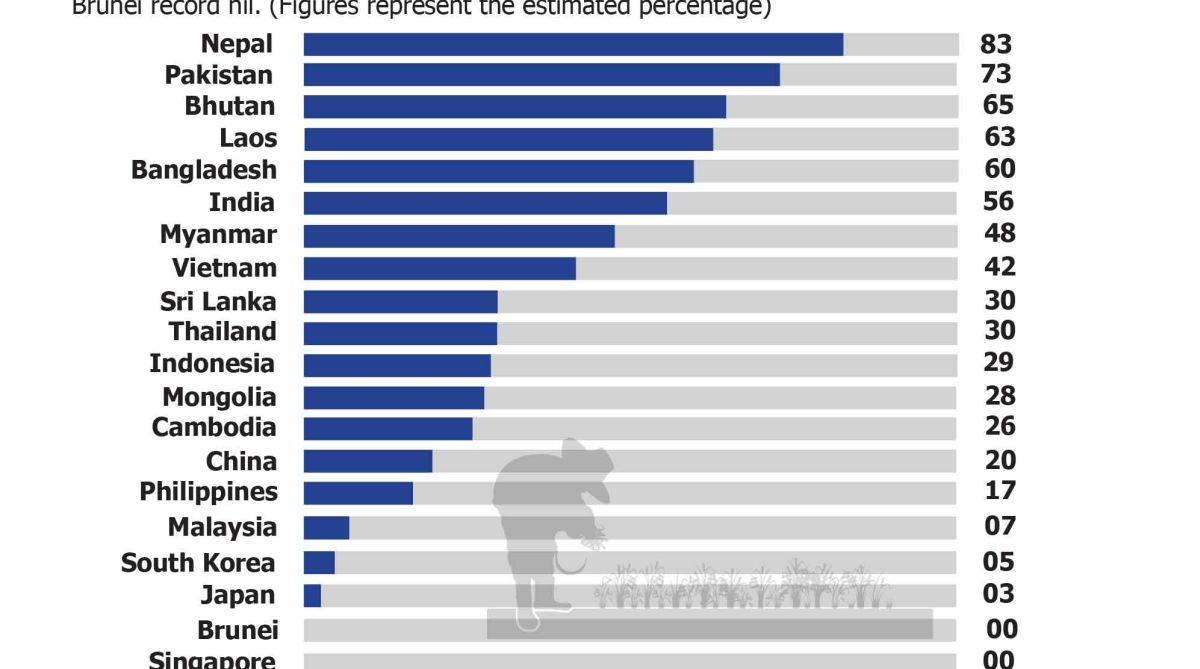In most non-industrial economies, agriculture plays an important role. Women in agriculture around the world are the most under-recognised labour force despite their significant and huge participation.
Nepal has the highest percentage of women working in agriculture. An estimated 83 per cent of women work in agriculture for a sustained livelihood in the Himalayan country. Experts ascribe this increase to the growing migration by the men to seek work outside their own country due to the prolonged conflict and rising poverty.
Advertisement
Agriculture based work is a significant economic activity mainly in the rural areas of Pakistan that records the second highest percentage of women working in agriculture.
Bhutan records an estimated number of 65 per cent of women working in agriculture as most of the women work in low paying jobs, agriculture being one of them.
Laos is a rural country with almost 73 per cent of its population living in rural areas and a 63 per cent of Lao women work in the agriculture sector.
Bangladesh has the fifth highest estimated percentage of women participation in agriculture. The country has a 60 per cent female participation with the recent studies indicating changing roles of women within the sector. Women’s participation in agriculture has seen a change from working as unpaid workers to farm managers owing to various development-centred programmes.
India has an estimated 56 per cent of women working in agriculture.
In Myanmar, agriculture is the backbone of the country. It has an estimated 48 per cent of women participation in agriculture.
Women in Vietnam, Sri Lanka and Thailand account for an estimated percentage of 42 per cent, 30 per cent and 30 per cent respectively. Women account for 20 per cent of labour in Indonesia followed by Mongolia and Cambodia at 28 and 26 per cent respectively.
In China agriculture is a vital industry with a female participation of 2o per cent. In Philippines 17 per cent women are active economic actors in agriculture sector.
Malaysia, South Korea and Japan record a comparatively low percentage of participation of women with seven, five and three per cent respectively.
Brunei and Singapore are not agriculture based economies and thus record no participation of women in the field.









